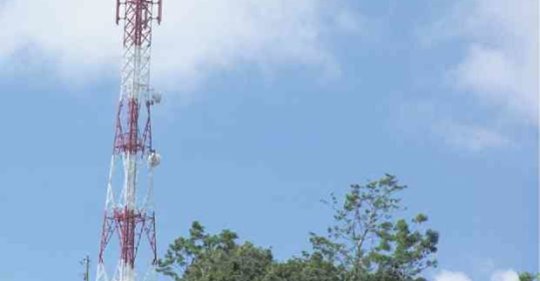DICT issues guidelines on cell tower sharing
The Department of Information and Communications Technology (DICT) issued the guidelines for the sharing of cell towers, marking the beginning of a new era in the telecommunications sector.
Years in the making, the rules on the co-location and sharing of passive telecommunications tower infrastructure will reorganize the prevailing business model of the telcos, which build and use their own cell sites for their mobile networks.
The guidelines will also strengthen the government’s overall goal to improve service quality by encouraging the construction of tens of thousands of new towers across the Philippines, where vast areas remain underserved or unserved.
The Inquirer has seen a copy of the rules, which were issued last May 29 and signed by Information and Communications Technology Secretary Gregorio Honasan II. It coincided with the relaxing of strict lockdown rules, which confined millions of people inside their homes and caused internet demand to surge.
The DICT had said the Philippines needed another 50,000 cell towers on top of the roughly 18,000 towers that telco incumbents PLDT Inc. and Globe Telecom have built or acquired over the past two decades.
More towers will decongest their mobile networks and translate to better services such as faster internet speeds.
Under the guidelines, the DICT allowed qualified independent tower companies to build cell sites to be leased to the telco companies on the “same or reasonably equivalent terms, conditions, fees and charges.”
The telcos themselves will no longer be barred from building new towers—a contentious proposal that was earlier made by presidential adviser and now Information and Communications Technology Undersecretary Ramon Jacinto.
However, all passive telecommunications tower infrastructure that they build after the effectivity of guidelines must provide ample space for sharing with other telcos.
All new installations of equipment such as transmitters and radio systems must also be located in shared towers, although the DICT said it would provide exceptions that show clear “meritorious grounds.”
The DICT said independent tower companies must be registered with the department. The companies must show relevant construction expertise and financial capacity equivalent to “category A” contractors.
Companies with previous agreements signed with the DICT will be deemed registered under the rules provided they file completed documentary requirements such as business permits and certification that it is not a related party to a mobile network operator.
A tower-sharing regime will also aid the rollout of the country’s third mobile player, the startup known as DITO Telecommunity, which is backed by China Telecom and Davao-based businessman Dennis A. Uy.
Disclaimer: The comments uploaded on this site do not necessarily represent or reflect the views of management and owner of Cebudailynews. We reserve the right to exclude comments that we deem to be inconsistent with our editorial standards.

